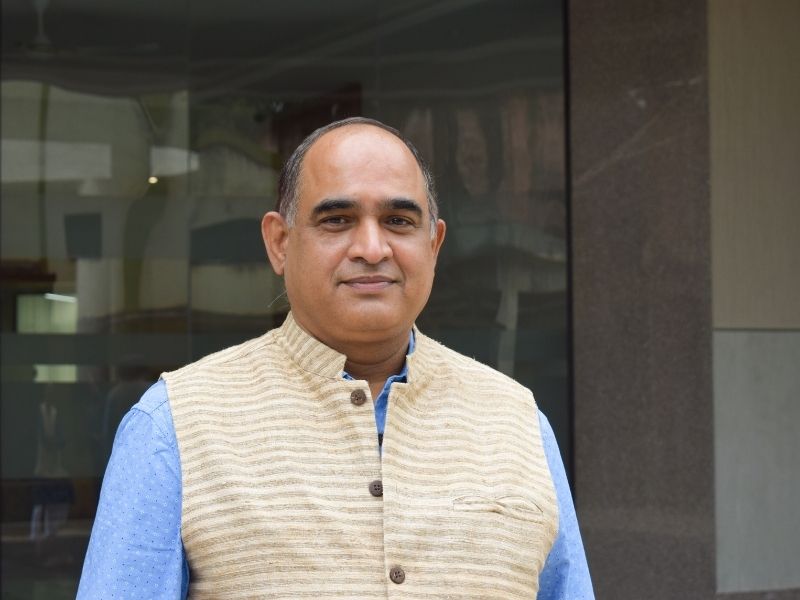Bengaluru-based RV Educational Institutions (RVEI) (estb.1940) has been providing quality education for the past 80 years. Currently, 20,000 plus students (kindergarten to PhD level) are enrolled in RVEI’s 22 educational institutions. With a vision to become a global university offering liberal education, the educational behemoth launched the RV University (RVU) in September this year. Speaking to Dipta Joshi, Prof (Dr.) YSR Murthy, Founding Vice-Chancellor, RV University, discusses the scope of the university’s current interdisciplinary curriculum and shares his prescription to ensure Indian higher education institutions become centres of excellence.
Q) What are the various programmes being offered by the university currently?
A) RV University’s vision is to be a ‘world-class, tech-driven, global university for liberal education while empowering citizens of tomorrow’. The schools at RV University offer an interdisciplinary academic experience to students. There are a range of combinations of minors, majors and elective courses available to students from all three schools – the School of Liberal Arts and Sciences, School of Design and School of Economics and Finance. Currently, the School of Liberal Arts and Sciences offers a BSc and a BA programme with 11 majors and an equal number of minors. The School of Design offers a BDes programme with four different specialisations and an MDes with two specialisations. The School of Economics and Finance offers a BA (Economics), BBA and BCom programme. All our schools have also established a PhD programme in their first year itself.
Q) Launched in September 2021, this is RVU’s first academic year. What sets the university apart from other similar liberal arts educational institutions?
A) RVU is backed by RVEI’s rich legacy of eight decades and will leverage the power of 22 RV institutions acting in unison as one. Our interdisciplinary curriculum offers languages, visual and performing arts, design, entrepreneurship all of which are facilitated by outstanding and highly qualified faculty members. We have several national and international collaborations with academic institutions, industry, policy think tanks and community-based organisations. Our students will get to work on live projects for hands-on learning and be able to benefit from our tie-ups for internships and placements. We have set up a strong internship and placement cell to ensure high-quality job opportunities as well as multiple internships to expose students to the real world. We also have a strong focus on research with a Centre for Doctoral programmes and PhD programme launched in the first year itself. Under-graduate students too have the opportunity to work in the seven research centres as research assistants. The university is hosting the CXO Lecture series bringing the best brains to the campus and conducting domain-specific workshops to enhance students’ skills. We also have a number of merit scholarships for deserving students and an incubator programme to promote entrepreneurship amongst students.
Of course, students also benefit from the added locational advantage of the university is based in Bengaluru – the Silicon Valley of India as well as the country’s start-up capital and innovation hub.
Q) How are the university’s programmes aligned to the New Education Policy (NEP) 2020?
A) Our programmes offer students a lot of flexibility to choose their majors and minors, as per their interests. Liberal education and interdisciplinary studies are the bedrock of our programmes.
From the next academic year starting in 2022, we will also offer a bachelor’s degree in Liberal Arts (B.L.A) as per the NEP. Other new programmes will include B.Sc., B.Tech. in Data Science under the School of Computer Science Engineering. The School of Economics and Finance will start a B.Sc. (Economics), M.A. (Economics) and Executive MBA programme. An interdisciplinary M.A. (Liberal Arts) degree will be offered jointly by the School of Liberal Arts and Sciences and the School of Design.
Q) What are RVU’s vision and strategic plan for the next five years?
A) We started out with 200 odd students but expect to cater to 7000 students over five years. Currently, we are a greenfield university but as mentioned earlier, we have 22 other institutions as part of the RVEI to our advantage. As per the RV University Act, 2019, our sister institutions can come into RVU’s fold after five years. We currently have three schools but have already drawn out plans to have as many as eight schools at the end of five years, by launching one new school each year.
Q) A growing number of Indian students opt to study abroad rather than in Indian higher education institutions. What is keeping Indian higher education universities lagging behind their foreign counterparts?
A) There are a few centres of excellence for higher education in India but we need many more. The Indian universities are mainly lagging behind their foreign counterparts in terms of research, laboratories and other facilities, teacher quality, international rankings, employability, respect for the degree, resources or endowments, support from the State, degree of autonomy and freedom from complex regulatory architecture.
Q) What would lead to a greater number of Indian higher education institutions becoming centres of excellence?
A) Some reforms were launched in the past few years by way of Graded Autonomy Regulations, Institutions of Eminence Regulations, New National Education Policy etc. But these need to be deepened further. It might take several decades for a comprehensive overhaul of higher education.
The Indian higher education Institutes can become centres of excellence when there is assured funding, focus on research, autonomy and visionary leadership. In addition, there is a need for attracting outstanding and highly motivated individuals to join the teaching profession with proper rewards. Equally important are state-of-the-art laboratories, robust digital infrastructure, enabling policy and regulatory environment for smooth growth, academic freedom, private corporate philanthropy and industry collaborations.
